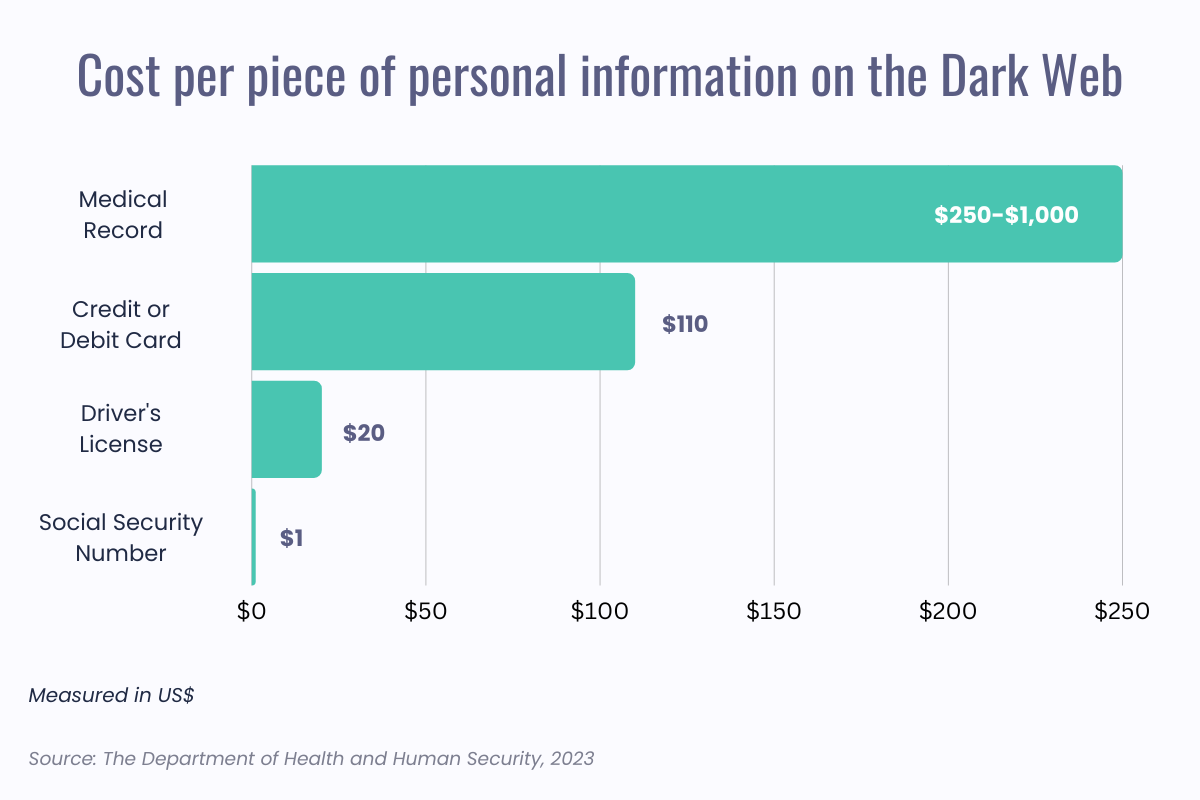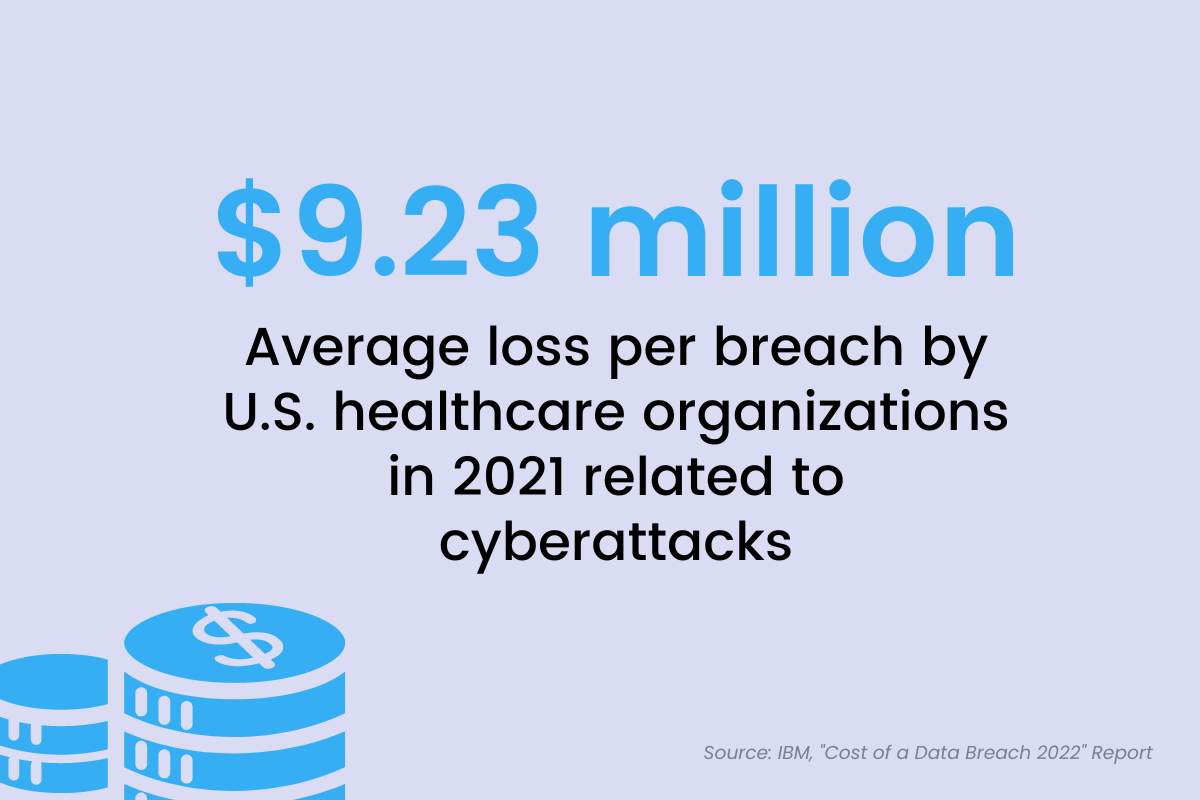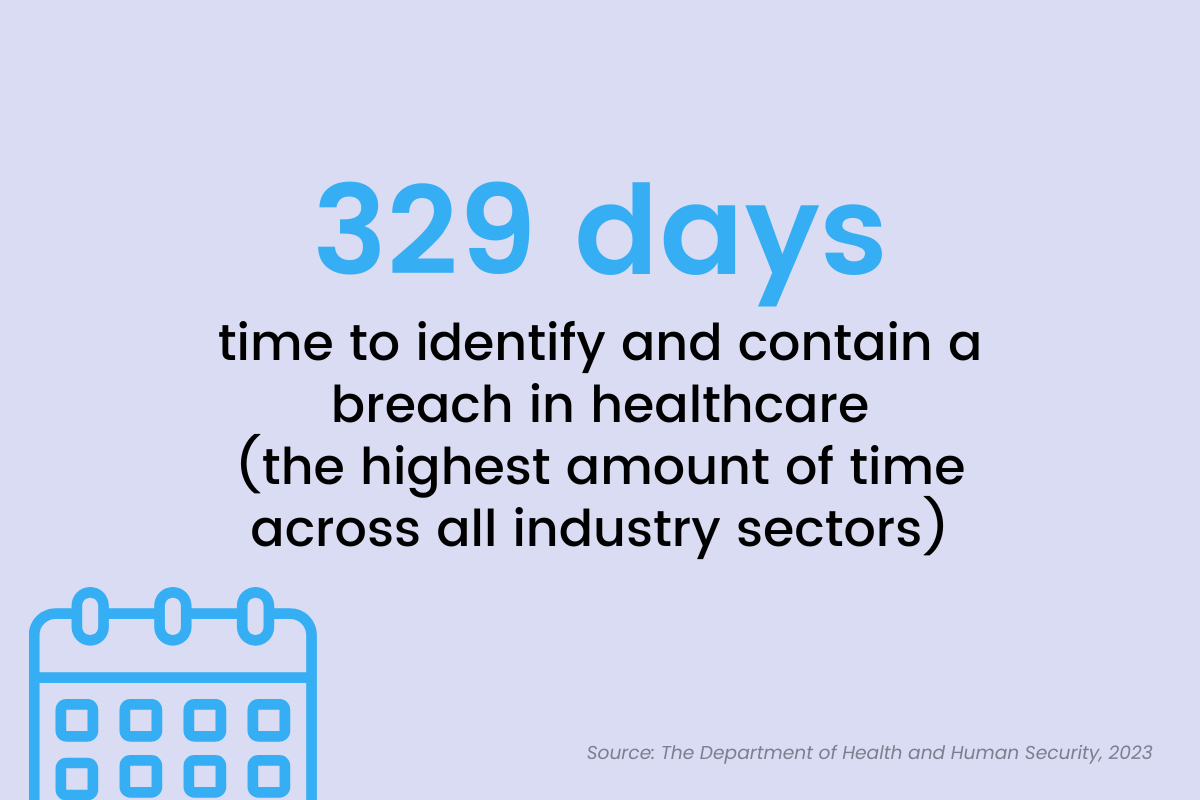3 min read
Improving Cybersecurity in Healthcare: How Incident Reporting Can Help
Performance Health Partners
April 27, 2023
Cybersecurity in healthcare is a growing issue, with healthcare organizations facing more cyber threats than ever before. With sensitive personal data at stake, it's imperative that healthcare providers stay ahead of the curve in protecting their systems from attacks. Read on to learn how incident management technology can help bolster cybersecurity in the healthcare space and safeguard patient data.
The State of Cybersecurity in Healthcare
In today's digital age, cybersecurity has become an increasingly pressing concern across all industries, and healthcare is no exception. The sensitive and personal nature of medical data – which can be very lucrative on the underground market, and thus valuable to cyberattackers – means that healthcare organizations must take every precaution to protect patient information from malicious cyber threats.

However, despite the best efforts of healthcare organizations to safeguard their data, cyberattacks and breaches continue to occur. A recent healthcare IT report observed a 94% increase in healthcare cyberattacks between 2021 and 2022, while a 2022 study found healthcare breaches rose by 51% in just three years.
Meanwhile, in a blog post published in March 2023, Microsoft shared that the number of DDoS attacks – crimes in which the attacker floods a server with internet traffic to prevent users from accessing connected online services and sites against its customers – against its customers in the healthcare space had increased from “10-20 attacks in November” to “40-60 attacks daily in February.”
With the average loss per healthcare-related data breach amounting to $9.23 million, cyberattacks can greatly impact a healthcare organization’s bottom line – not to mention their brand reputation and credibility. But there’s also a direct link between attacks and increased mortality, according to Ponemon Institute. Ransomware attacks in particular have resulted in a host of negative outcomes, including delayed medical treatments, extortion efforts targeting patients, compromised patient safety, and in some cases, even patient death.

These alarming findings highlight the urgent need for effective incident management technology to be implemented in healthcare organizations to mitigate the risk of data breaches and cyberattacks.
Unfortunately, healthcare tends to be more reactive than proactive regarding cybersecurity, according to the Healthcare Cybersecurity Benchmarking Study, a report published by KLAS Research and the American Hospital Association (AHA). A Salesforce survey also found that only one-fifth of healthcare organizations enforce their cybersecurity protocols and only two-fifths of healthcare workers look at their security protocols before using new tools or technology, even within organizations that have a security-first culture.
Unsurprisingly, this can result in increased financial losses, compromised patient safety, and an increased time to resolution. In fact, according to a report published by IBM Security, healthcare had the highest average time to identify and contain a breach, at 329 days. This was the highest amount of time across all industry sectors.

Incident Management Software: A Proactive Approach to Cybersecurity in Healthcare
In its recently updated cyber incident response resources for healthcare sector, The Department of Health and Human Security emphasized the need to have a proven and tested incident response process in place.
“When you don't have a comprehensive plan, there's a good chance that you'll lose track of incidents or that you'll react inappropriately to an incident,” Nathan Salminen, senior associate at Hogan Lovells, explained in an interview with HealthITSecurity.
An effective incident management process can help quickly manage cyber incidents when they do occur, but also prevent them from happening in the first place. Utilizing an incident management software can streamline this process.
So, what exactly is incident management technology, and how can it help improve cybersecurity in healthcare?
Incident management technology is a digital tool that allows organizations to document, track, analyze, and respond to incidents like cyberattacks in a timely and effective manner. By using an incident management system, healthcare organizations can more efficiently respond to potential security threats and take appropriate action to prevent them from escalating.
One key feature of an effective incident management solution is automatic alerts. When an incident is reported, it is immediately escalated to the appropriate contact, who can then take action to manage and contain the incident.
As cyber-related incident and near miss data is collected over time, an incident management software can help healthcare leaders identify weaknesses in systems and processes so that they can take corrective action to fill these gaps. In turn, healthcare organizations can better protect patient data and minimize the impact of cybersecurity incidents.
The threat of cyberattacks is on the rise in all critical infrastructure sectors, with the healthcare industry being particularly vulnerable. Cyberattacks pose a direct threat not only to the security of organizational systems and sensitive patient data but also to the health and safety of our communities.
Although innovation and advancements in healthcare technology provide promising solutions to some of the most complex issues in clinical care, it’s only effective if it's secure. By leveraging an incident management system, healthcare organizations can proactively address security threats, improve patient safety, and ensure compliance with industry regulations and best practices.
Ready to learn more?
Performance Health Partners can help. With our innovative incident management system, your organization can proactively track and document cyber risks, and take corrective action to minimize the risk of data breaches and safeguard patient information.
With Performance Health Partners, you can take a preemptive approach to cybersecurity, preventing potential threats before they happen. Request a demo to learn more about how we can help strengthen your cybersecurity processes.

